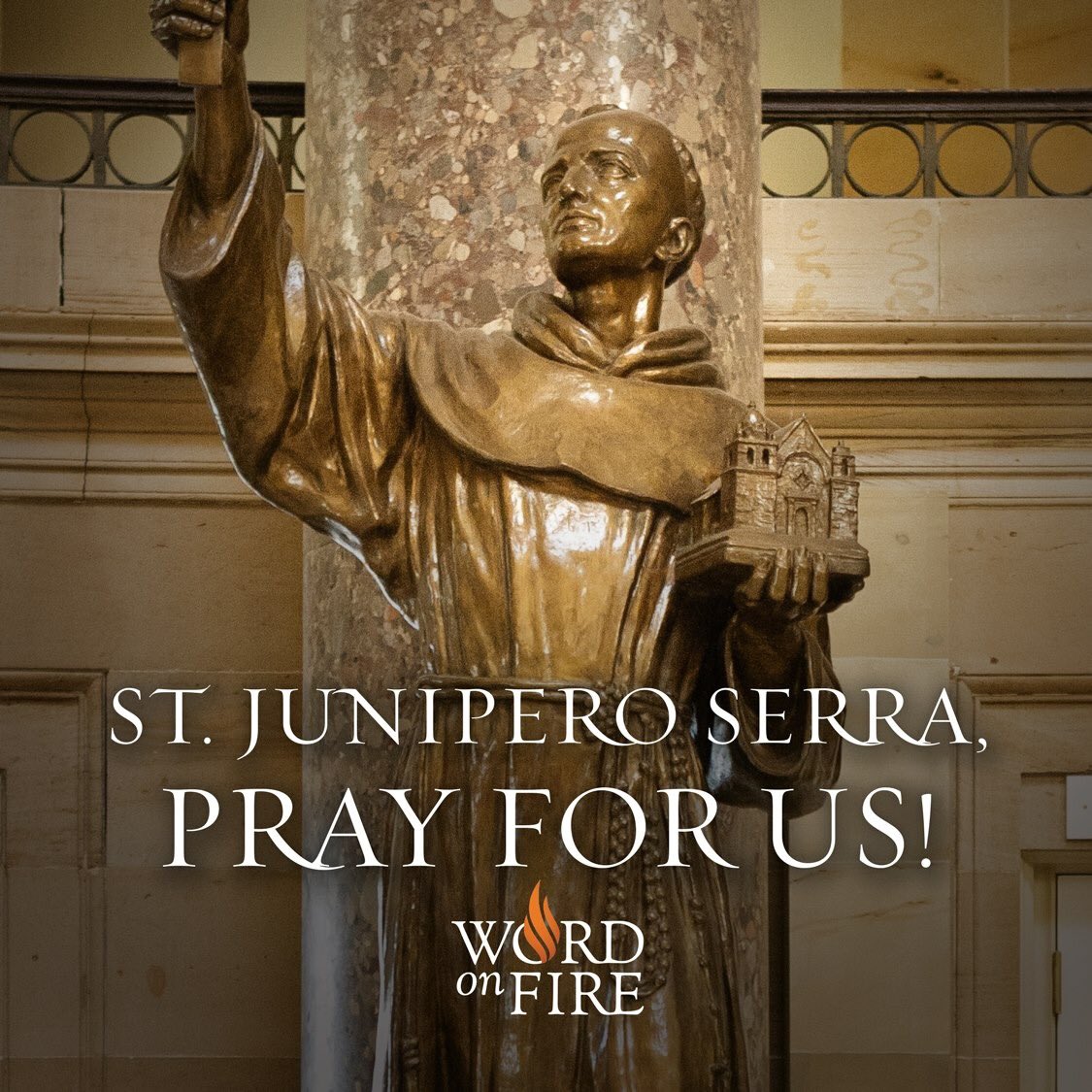1. Pope Francis today:
Faced with the tragic events of human history we can feel crushed at times, asking ourselves, “Why?”. Humanity’s evil can appear in the world like an abyss, a great void: empty of love, empty of goodness, empty of life. And so we ask: how can we fill this abyss? For us it is impossible; only God can fill this emptiness that evil brings to our hearts and to human history. It is Jesus, God made man, who died on the Cross and who fills the abyss of sin with the depth of his mercy.
Saint Bernard, in one of his commentaries on the Canticle of Canticles (Sermon 61, 3-5: Opera Omnia, 2, 150-151), reflects precisely on the mystery of the Lord’s wounds, using forceful and even bold expressions which we do well to repeat today. He says that “through these sacred wounds we can see the secret of [Christ’s] heart, the great mystery of love, the sincerity of his mercy with which he visited us from on high”.
Brothers and sisters, behold the way which God has opened for us to finally go out from our slavery to sin and death, and thus enter into the land of life and peace. Jesus, crucified and risen, is the way and his wounds are especially full of mercy.
The saints teach us that the world is changed beginning with the conversion of one’s own heart, and that this happens through the mercy of God. And so, whether faced with my own sins or the great tragedies of the world, “my conscience would be distressed, but it would not be in turmoil, for I would recall the wounds of the Lord: ‘he was wounded for our iniquities’ (Is 53:5). What sin is there so deadly that it cannot be pardoned by the death of Christ?” (ibid.).
Keeping our gaze on the wounds of the Risen Jesus, we can sing with the Church: “His love endures forever” (Ps 117:2); eternal is his mercy. And with these words impressed on our hearts, let us go forth along the paths of history, led by the hand of our Lord and Saviour, our life and our hope.
2. I opened Sr. Faustina’s diary randomly this morning (which is what I tend to do now and again) and this is what I read:
734 [A]s for me, I try only to be faithful to His grace. I have submitted my soul completely to the influence of God. This Mighty Ruler of Heaven has taken entire possession of my soul. I feel that I am being lifted up above earth and heaven into the inner life of God, where I come to know the Father, the Son and the Holy Spirit, but always in the unity of majesty.
735 + I will enclose myself in the chalice of Jesus so that I may comfort Him continually. I will do everything within my power to save souls, and I will do it through prayer and suffering.
(158) + I try always to be a Bethany for Jesus, so that HE may rest here after all His labors. In Holy Communion, my union with Jesus is so intimate and incomprehensible that even if I wanted to describe it in writing I could not do so, because I lack the words.
736 This evening, I saw the Lord Jesus just as He was during His Passion. His eyes were raised up to His Father, and He was praying for us.
4. An explainer from Our Sunday Visitor.
5. A top 10 of B16 Divine Mercy quotes.
6.
Mercy, is not a weakness,
Love, is not a meekness
Loving mercy is a sign of attentiveness
A striving for the eternal value of holiness.
— Fr. Patrick Brennan (@Pathound) April 12, 2015
7. Misericordiae Vultus … what a gift!
8. Give thanks to the Lord, for he is good; for his mercy endures for ever!” (Ps 117: 1).
John Paul II on the second Divine Mercy Sunday.
From JPII that day, in 2001:
The Heart of Christ! His “Sacred Heart” has given men everything: redemption, salvation, sanctification. St Faustina Kowalska saw coming from this Heart that was overflowing with generous love, two rays of light which illuminated the world. “The two rays”, according to what Jesus himself told her, “represent the blood and the water” (Diary, p. 132). The blood recalls the sacrifice of Golgotha and the mystery of the Eucharist; the water, according to the rich symbolism of the Evangelist John, makes us think of Baptism and the Gift of the Holy Spirit (cf. Jn 3: 5; 4: 14).
Through the mystery of this wounded heart, the restorative tide of God’s merciful love continues to spread over the men and women of our time. Here alone can those who long for true and lasting happiness find its secret.
More:
“Jesus, I trust in you”. This prayer, dear to so many of the devout, clearly expresses the attitude with which we too would like to abandon ourselves trustfully in your hands, O Lord, our only Saviour.
You are burning with the desire to be loved and those in tune with the sentiments of your heart learn how to build the new civilization of love. A simple act of abandonment is enough to overcome the barriers of darkness and sorrow, of doubt and desperation. The rays of your divine mercy restore hope, in a special way, to those who feel overwhelmed by the burden of sin.
Mary, Mother of Mercy, help us always to have this trust in your Son, our Redeemer. Help us too, St Faustina, whom we remember today with special affection. Fixing our weak gaze on the divine Saviour’s face, we would like to repeat with you: “Jesus, I trust in you”. Now and for ever. Amen.
9. From JPII when he at the canonization Mass of St. Maria Faustina Kowalska — who “she made her life a hymn to mercy”:
What will the years ahead bring us? What will man’s future on earth be like? We are not given to know. However, it is certain that in addition to new progress there will unfortunately be no lack of painful experiences. But the light of divine mercy, which the Lord in a way wished to return to the world through Sr Faustina’s charism, will illumine the way for the men and women of the third millennium.
However, as the Apostles once did, today too humanity must welcome into the upper room of history the risen Christ, who shows the wounds of his Crucifixion and repeats: Peace be with you! Humanity must let itself be touched and pervaded by the Spirit given to it by the risen Christ. It is the Spirit who heals the wounds of the heart, pulls down the barriers that separate us from God and divide us from one another, and at the same time, restores the joy of the Father’s love and of fraternal unity.
10. Pope Francis on this day last year — the blessed canonization Mass of John XXIII and JPII:
At the heart of this Sunday, which concludes the Octave of Easter and which Saint John Paul II wished to dedicate to Divine Mercy, are the glorious wounds of the risen Jesus.
11. From Scott Hahn:
We encounter Him as the apostles did – in the breaking of the bread on the Lord’s day (seeActs 20:7; 1 Corinthians 16:2; Revelation 1:10).
There is something liturgical about the way today’s Gospel scenes unfold. It’s as if John is trying to show us how the risen Lord comes to us in the liturgy and sacraments.
In both scenes it is Sunday night. The doors are bolted tight, yet Jesus mysteriously comes. He greets them with an expression, “Peace be with you,” used elsewhere by divine messengers (see Daniel 10:19; Judges 6:23). He shows them signs of His real bodily presence. And on both nights the disciples respond by joyfully receiving Jesus as their “Lord.”
Isn’t this what happens in the Mass – where our Lord speaks to us in His Word, and gives himself to us in the sacrament of His body and blood?
Let us approach the altar with joy, knowing that every Eucharist is the day the Lord has made – when the victory of Easter is again made wonderful in our eyes.
13. Word on Fire on mercy: A homily from Fr. Robert Barron. And Fr. Steve Grunow:
The cross of Christ is the absolute worst thing humanity could ever do. In response to God’s overture of love for us, a love expressed by making himself vulnerable to suffering and death, humanity proves itself to be so wicked that it responds to God’s love by torturing him and trying to kill him in perhaps the most cruel way that we could devise.
The ordinary expectation of justice would be that God would deal with us in the same manner that we treated him or at the very least that he would hate us.
But that isn’t what God does. In a surprising revelation, after the horror of the cross, God in Christ returns to the very people who had betrayed him and declared themselves to be his enemies and offers his forgiveness- his mercy.
This revelation of undeserved mercy is displayed radically in the Gospel for today. It is in an encounter with Christ who is merciful that dispels Thomas’ doubts and compels him to admit that he had been wrong in his refusal of Christ. The encounter with Christ’s mercy changes Thomas and it changes the Apostles. They become, by Christ’s command, agents of his forgiveness to the world, charged with the mission of imparting to others the word and works of mercy that they have themselves received from the Lord.
Christ’s mercy becomes, not just an idea or feeling, but a mission- a work. Mercy is a work of the Church manifested in the Sacrament of Reconciliation and in those activities of the Christian life called the corporal and spiritual works of mercy.
The experience of mercy, if it is authentic, and truly accepted, leads to mission.
In our era, as it has been in every era of the Church’s life, the gift of God’s mercy can become distorted. For some, the faith of the Church is a kind of birthright that is supposed to afford them access to certain faith-based privileges, rather than being an encounter with the living, divine Christ, who forgives our sins and in doing so, radically changes our lives.
When the distortion of the Church’s faith sets in, when we think of it simply as a birthright or ethnic identity or as a means to our own ends, a mere matter of institutional matriculation, God’s mercy is often thought of as dispensation from responsibility, of God looking the other way, so that we can justify our sins and do whatever we please because, we surmise, God will just love me anyway.
This twisted reasoning is blasphemy.
God’s mercy is not dispensation from responsibility, but the gift of another chance. What we do (or don’t do) with that chance matters.
God’s mercy affords us the opportunity to set right what we have set wrong.
Mercy is an opportunity, not a guarantee in regards to the final outcome. We can miss the opportunity that we are given, squander that chance.
But now, right now, the opportunity is offered, the chance is before us.
Now is the time of the mercy of God in Christ.
14. From Archbishop Augustine DiNoia (the congregation broke out into applause at the end of this homily, overwhelmed with the reality of #DivineMercy):
We all do need some mercy now, but—and don’t ever forget this—God wants to give us some mercy now, if only we would ask. In a real sense, as Blessed John Paul suggests, God “needs” us to ask. Our experience tells us why this must be so. If someone insults you, or offends you in some way, you may want to forgive the person in question, but that’s very hard to do if they don’t apologize and ask for your forgiveness. The situation in the Sacrament of Divine Mercy is not so different. As Pope Francis put it so aptly, “God’s face is the face of a merciful Father who is always patient…. The problem is that we ourselves tire, we do not want to ask, we grow weary of asking for forgiveness.” God is patiently waiting in the confessional to make us a gift of His mercy. We must not keep Him waiting any longer.
The Sacrament of Divine Mercy—won for us by Christ in the events of the passion, death and resurrection that we have celebrated in this Easter Season—is the concrete expression in space and time of the condescension and forbearance by which God looks with merciful forgiveness on our sins and the sins of the whole world. On this Divine Mercy Sunday, we must resolve to take advantage of this great sacrament, giving thanks “to the Lord for He is good, for His mercy endures forever.” Amen.
Thanks be to God. Jesus, I trust in you.
I guess this makes it 15:
Lilies and prayers at the feet of Our Lady pic.twitter.com/HTLcrxtpIu
— Dominican Sisters (@DomSrStJoseph) April 12, 2015












